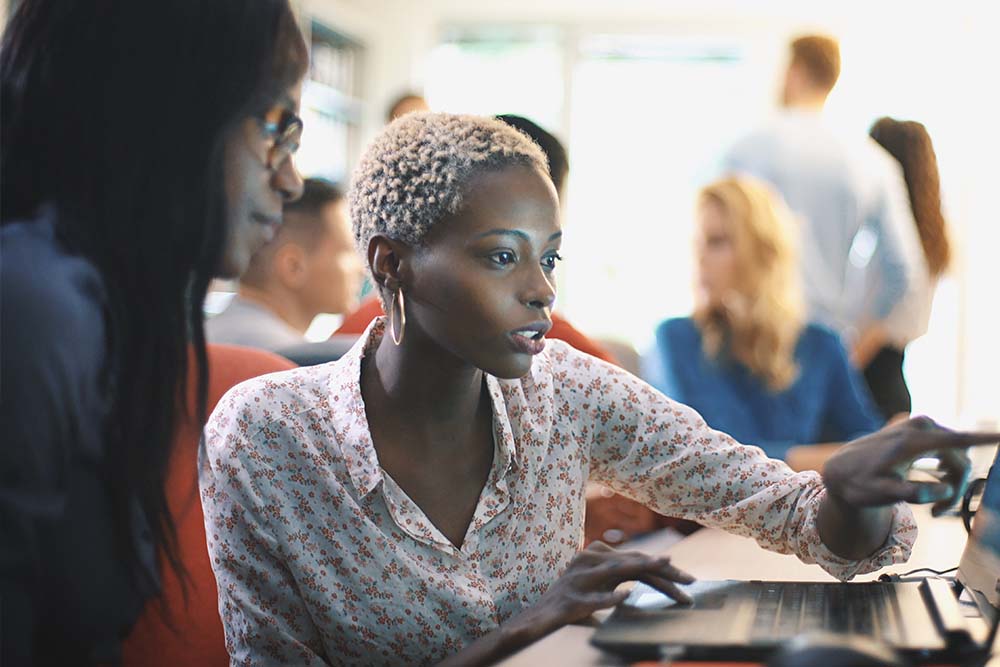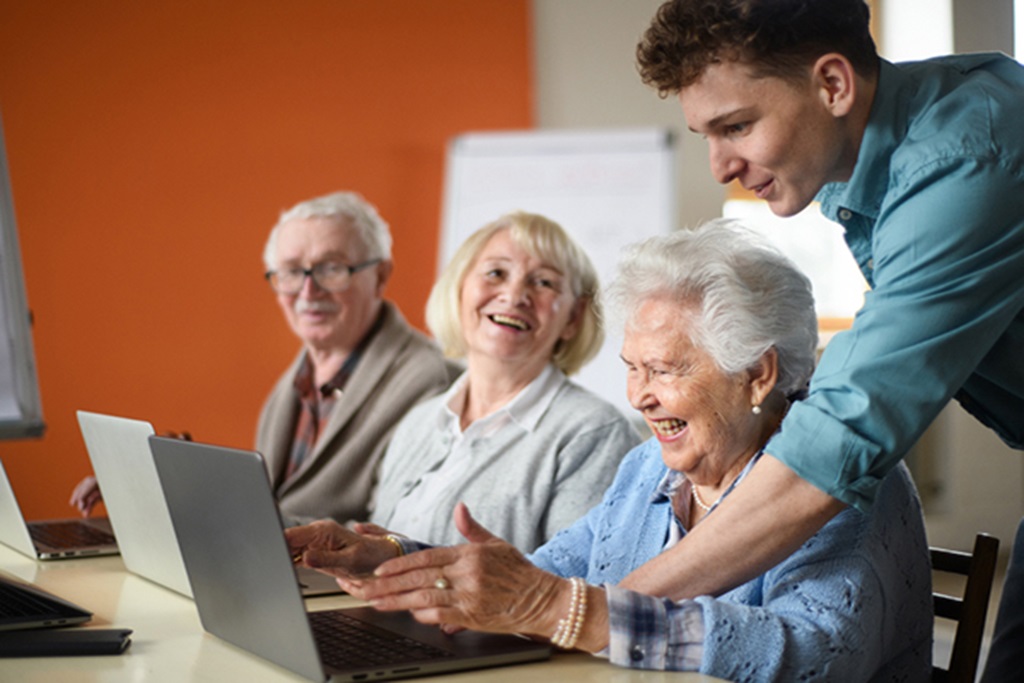Insights
How we can help communities thrive by boosting digital inclusion
Author
Martin McFadyen
Director of Public Sector
Virgin Media O2 Business
3 minutes
29th January 2024
Share this article:
10.2 million people lack the most basic digital skills to use the internet and 1 in 14 households have no home internet access at all.1
Digital access and skills are essential to enabling people to fully participate in our increasingly technology-dependent society.
We need to end digital poverty and equip more people with the tools and skills they need to not just survive, but thrive, online. And open up the UK to the benefits of digital inclusion.
Here are a few ideas on how we can do that.
Community through connectivity
Several important initiatives to tackle digital exclusion are already in action, such as the National Databank.
Launched in July 2021 by Virgin Media O2 and Good Things Foundation, it provides free mobile data to those who need it.
Other groups and local initiatives across the UK are also making an impact.
Free basic skills programmes are available to help people with no online experience take their first steps into the digital world at their local library or community centre.
Tech donation schemes are a perfect example of how your organisation can make meaningful progress towards your ESG goals. And they can be simple to start and get involved with.
These are schemes that invite people, businesses and other organisations to donate old laptops and other electronic devices to be refurbished and distributed to locals in need.
Our own Tech Donation Programme enables our customers to donate refurbished smartphones and mobile data through us, allowing them to help communities in need without taking on the cost themselves.
Tackling the regional digital divide
We’ve already seen several public and private partnerships tackling challenges around connectivity, accessibility, affordability, skills and motivation through a series of programmes and community initiatives.
One example of this is our partnership with Greater Manchester Combined Authority (GMCA) to tackle digital inequality.
Our social value programme began in 2020 with the rollout of the UK’s largest Local Full Fibre Networks Programme (LFFN) across Greater Manchester.
The programme included a number of bold investments in social value initiatives that supported Greater Manchester’s Digital Blueprint, including a commitment from Virgin Media Business to directly create 20 apprenticeships based in Greater Manchester, as well as investing in digital and STEM skills for young people.
Find out more in our Tackling digital inequality in Greater Manchester report.
Greater Manchester is where we also successfully piloted our digital skills programme, Connect More, in 2022.
Since then we’ve been rolling the programme out nationally to build digital skills and confidence across the UK.
Delivered by our staff volunteers who share their time to provide digital skills support to those in need, we work alongside a range of public sector customers and community organisations.
Watch the video to learn more.
“Collaboration is integral to what we do and tackling digital exclusion through Virgin Media O2 Business’s Connect More Programme supports our objective of becoming recognised as a world leading digital city-region in a way that puts our people first.”
Andy Burnham, Mayor of Greater Manchester
The collaboration between local authorities, private companies, charities and countless local community organisations is creating a blueprint for bringing connectivity to communities where digital exclusion has been deeply entrenched and has had a profound impact on people’s lives.
Doing good as well as doing business
88% of UK workers want to see faster ESG advancements according to our recent ESG spotlight report. A further 86% said they were likely to consider contributing to improving digital inclusion across the UK.
Want to find out more about how we can help your organisation create social value, understand the impact of your digital transformation or help you achieve sustainability goals?
Check out our sustainability hub.
Or follow our simple steps to help your organisation achieve more social value impact.
1. Good Things Foundation Digital Nation 2023
Want to speak to one of the team?
call 0800 064 3790


